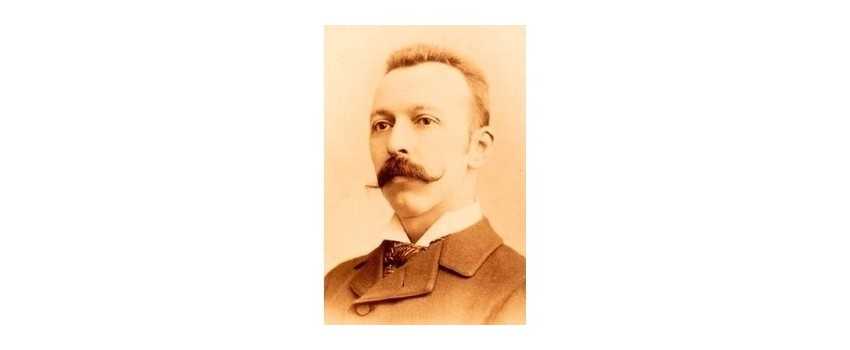Boellmann, Symphonic Variations Op. 23 For Cello (IMC)
Boellmann, Symphonic Variations Op. 23 for Cello (IMC)
Leon Boëllmann was a French composer and organist who lived in the late 19th century. He was a musical prodigy who became a legend in his field. However, despite his obvious brilliance, Bollmann is seldom mentioned in discussions on classical music.
Leon Boëllmann was born in Ensisheim, a small town in the region of Alsace, France, on September 25, 1862. His love for music began at a young age, and he was the youngest of three kids. At age five, he began to take piano lessons and showed remarkable talent. By age nine, he had written his first composition, a piano sonata. Boëllmann's family recognized his talent and encouraged him to pursue music. He studied at the Strasbourg Conservatory, where he was a student of the famous composer and organist Gustav Adolf Merkel. Boëllmann showed great promise as an organist and quickly became known for his technical skill and musicality. He also studied piano, harmony, and counterpoint and showed a particular interest in the music of J.S. Bach. Despite his success at the conservatory, Boëllmann's early career was not without its challenges. His family's financial situation was difficult, and he had to work hard to support himself. He taught piano and worked as a church organist to make ends meet. But his efforts paid off, and he was soon serving as the organist at Paris's St. Vincent de Paul.
Boëllmann's career as an organist and composer took off when he was appointed organist of the Church of Saint-Vincent-de-Paul in Paris in 1881—his virtuosity on the instrument and ability to improvise impressed many. In 1884, he became the assistant organist at the Church of Saint-Sulpice, one of the most prestigious churches in Paris. Boëllmann's compositions were a unique blend of Romanticism and French elegance, showcasing his organ mastery and ability to create expressive and haunting melodies. His compositions were inspired by the classical music of Bach and Franck and the folk music of Alsace. Boëllmann published several collections of organ pieces, including "Douze Pièces Nouvelles," "Heures Mystiques," and "Suite Gothique." His reputation as one of the most gifted composers of his day swiftly spread as his compositions were praised by both reviewers and listeners.
Boëllmann's most famous work is "Suite Gothique," a four-movement suite for an organ published in 1895. The suite is a French Romanticism masterpiece showcasing Boëllmann's skill as a composer and organist. The first movement, "Introduction-Choral," is a majestic and powerful piece that sets the tone for the entire suite. The second movement, "Menuet Gothique," is a playful and lively piece reminiscent of the Baroque era. The third movement, "Prière à Notre-Dame," is a hauntingly beautiful piece that is based on the Gregorian chant "Ave Maris Stella." The final movement, "Toccata," is a virtuosic and thrilling piece that showcases Boëllmann's technical skill on the organ. Another notable work by Boëllmann is "L'Orgue Mystique," a collection of 51 pieces for the liturgical year. The collection was published in 1927, several years after Boëllmann's death, and is considered one of his most outstanding achievements. The pieces are based on Gregorian chants designed to be played during Catholic mass. The collection is a testament to Boëllmann's skill as a composer and his dedication to the church.
Leon Boëllmann's music significantly influenced the development of French organ music. His works were admired by many of his contemporaries, including Charles-Marie Widor and Louis Vierne. Boëllmann's compositions were known for their technical difficulty and musicality, and they continue to be studied and performed by organists worldwide. Despite his contributions to classical music, Boëllmann's life and works have been largely forgotten. However, his music continues to stand the test of time and is a testament to his genius as a composer and organist.
Leon Bollmann's life was cut short when he died at 35 from TB. He had been sick for some time and had to resign from his post at the Church of Saint-Vincent-de-Paul. Boëllmann's death was a significant loss to the music world, and many mourned his passing. Many of the most famous artists of the period paid their respects during his burial, including Charles-Marie Widor and Louis Vierne. However, Boëllmann's legacy as a composer and organist lives on, and his music inspires and captivates audiences worldwide.
Leon Boëllmann's contributions to French organ music were significant. His compositions were known for their technical difficulty and musicality and helped to establish the French Romantic organ style. Boëllmann's music was also notable for its use of chromaticism and modality, which gave his compositions a unique and haunting quality. Boëllmann's influence on French organ music can still be heard today in the works of contemporary composers such as Olivier Messiaen and Jean Guillou. In addition, his legacy as a composer and organist continue to inspire and influence musicians worldwide.
Leon Boëllmann was a forgotten genius of classical music. Despite his undeniable talent and contribution to the genre, his life and works have been overshadowed by the likes of Bach and Mozart. However, his music continues to stand the test of time and is a testament to his genius as a composer and organist. Boëllmann's compositions uniquely blend Romanticism and French elegance, showcasing his mastery of the organ and ability to create expressive and haunting melodies. His contributions to French organ music were significant, and his legacy as a composer and organist continues to inspire and influence musicians worldwide.

Boellmann, Symphonic Variations Op. 23 for Cello (IMC)